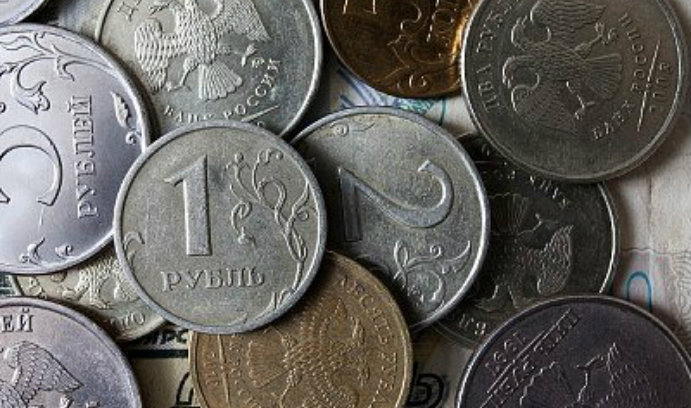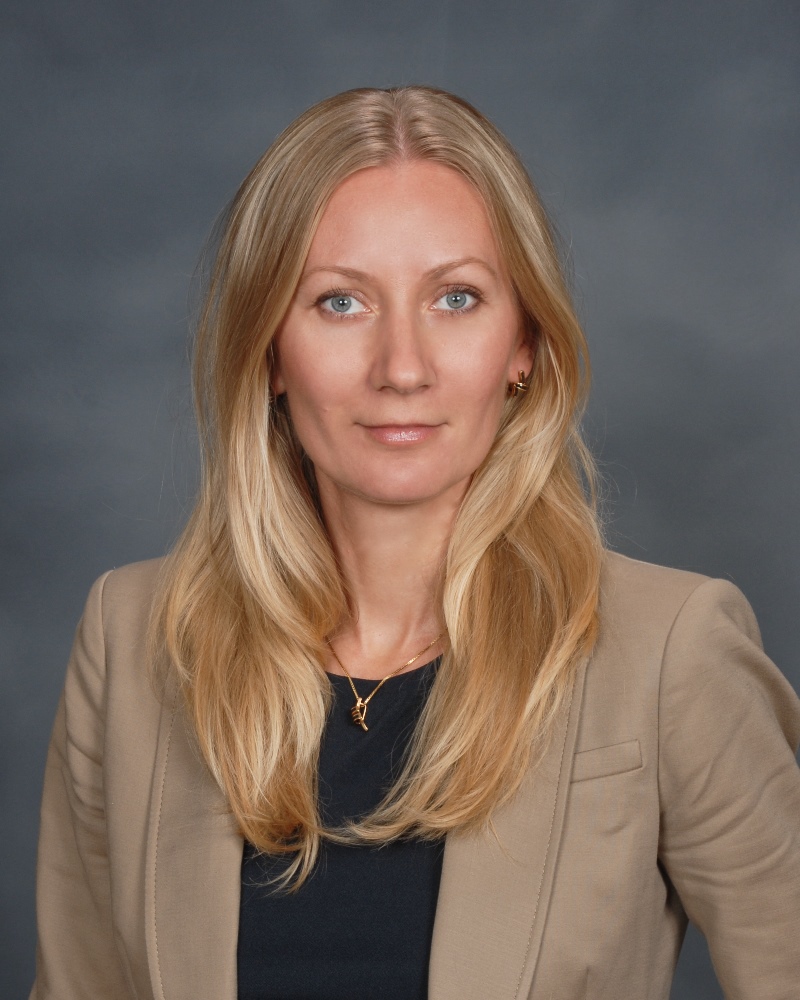Financial crisis raises large Russian question mark

In the wake of Russia’s financial crisis, says Dinissa Duvanova, the Russian ruble has been severely devalued. (Photo courtesy of Corbis Images)
Falling worldwide oil prices may mean good news for Americans buying gas and home heating oil, says Dinissa Duvanova, but they are taking a toll on the economy of Russia.
Combined with the sanctions imposed by Western nations on Russia after its takeover of Crimea in Ukraine last March, plummeting petroleum prices have caused a severe devaluation of the Russian ruble and a sharp hike in the interest rates set by Russia’s central bank.
These pressures, says Duvanova, an assistant professor of international relations, threaten to undermine President Vladimir Putin’s popularity with Russian citizens and, in turn, the stability of Putin’s regime.
“I’m very concerned about Putin’s behavior,” says Duvanova. “Putin has tight control of the mass media and he is a master user of propaganda to rally support for outrageous policies.
“Russia has as many problems now as it did in the 1990s, but I was more optimistic about Russia’s promise then than I am now. Twenty years ago, there was much greater diversity in the nation. There were multiple competing elites and political viewpoints. It was harder for the central government to control them.
“Now, it is not feasible for alternative political elites and opinions to alter Putin’s harmful policies to the Russian public and the Russian nation.”
Duvanova, an expert in political economy, was quoted extensively in December in a Washington Post article titled “Will Russia’s economic turmoil affect its foreign policy?”
In November, she won a major award for her book, Building Business in Post-Communist Russia, East Europe and Eurasia: Collective Goods, Selective Incentives and Predatory States, which was published in 2013 by Cambridge University Press. The award—the Ed A. Hewett Book Prize for outstanding publication on the political economy of Russia, Eurasia and/or Eastern Europe—was given by the Association for Slavic, East European and Eurasian Studies.
An economy tied to oil
The Russian economy, says Duvanova, depends heavily on exports of natural resources, especially the sale of oil and natural gas to other European nations. Some experts estimate that Russia’s financial stability requires a worldwide price of $100 per barrel of oil. The price dropped from $80 in November to below $50 in January.
To compensate for lost revenue, Russia is stepping up production of its military exports, which include munitions, airplanes, turbines and helicopters. The falling ruble, says Duvanova, gives Russia the opportunity to become more competitive on the world market by producing these items more cheaply.
But it is doubtful, she adds, that Russia will be able to attract the foreign direct investment (FDI) which often accompanies the devaluation of a nation’s currency and which Putin until recently had been successful at attracting. Many of the foreigners most likely to invest in Russia’s economy are wealthy Russians who left the country with their capital. Some went into exile to avoid the fate of Mikhail Khodorkovsky, the former Russian businessman who was imprisoned for 10 years by Putin.
“Currency devaluation makes it more advantageous for foreigners to invest in a nation,” says Duvanova, “because they can purchase labor and raw materials more cheaply. This rule of thumb might not apply to Russia because the capital behind potential FDI is held by overseas Russian investors who are cautious when they see capital inside Russia depreciating.”
Russia’s financial crisis has also dampened its growing economic ties with China, says Duvanova.
“Russia and China signed an energy agreement last year. Under its terms, China’s National Petroleum Corporation and Russia’s Gasprom will invest in infrastructure to reorient Russia’s energy supplies toward China. China was eager to support a framework agreement for the supply of natural gas, but it opted for a non-binding deal due to economic uncertainty over energy prices and over Russia’s ability to provide necessary investment.
“The agreement still stands, but the sense is that China is not so eager to put its money into the Russian economy and may pull back.”
Incriminating videos and smart sanctions
The recent escalation of the military conflict in eastern Ukraine, says Duvanova, has erased doubts that Russia is involved in the struggle between Russian separatists and the Ukrainian government. Social media videos showed weapons being unloaded from some of the trucks in the convoys of vehicles carrying “humanitarian” aid from Russia to eastern Ukraine last summer.
“These videos suggested that Russia was sending military equipment to the separatists,” says Duvanova. “That explains the recent escalation in the conflict. Russia is pouring military equipment into the region and relying on Russian mercenaries more than local volunteers. These mercenaries are well-equipped. Some of them, in TV interviews, are not hiding that they’re mercenaries. They say they are Russians patriotically trying to save Ukraine from fascism.
“Putin and the Russian media use the word ‘fascist’ to describe Ukrainian nationalism and the current Ukrainian regime. But a number of top posts in the government are occupied by Ukrainian Jews and foreigners. In last year’s elections, the Ukrainian liberal nationalists won only 7.5 percent of the vote in last year’s elections. The ultranationalist ‘Right Sector’ failed to pass the 5-percent threshold to receive parliamentary representation. They have no influence on the government.”
The economic sanctions imposed on Russia last year by the U.S. and other Western nations have been dubbed “smart sanctions,” says Duvanova, because they are designed to hurt specific individuals and firms without harming average Russians.
“The goal of smart sanctions is to target only the culpable cronies of a corrupt government. In the past, U.S. sanctions have been criticized for harming average citizens and motivating them to support their government.
“Russia, however, has imposed counter-sanctions that are more broad-based, restricting the imports of food from the West, for example. This directly affects average Russian citizens and Russian consumer choices.”
For much of 2014, according to public opinion polls, Putin enjoyed domestic approval ratings of more than 70 percent. Western disapproval of the Crimea takeover and of Russia’s military interference in Ukraine has done little to dent his popularity, says Duvanova, but the current economic crisis poses a more serious threat.
“The major explanation for Putin’s popularity is that Russia has had a good economy under Putin in stark contrast to the shape of the economy under Boris Yeltsin’s more liberal leadership of the 1990s,” says Duvanova.
“But now that is changing and the question becomes whether the strategy of building popular support by ensuring the good life can continue to work. Until recently, Putin was popular because Russians could see the advantages economically. That’s no longer true, so the question is what is Putin going to do—step up repression, intensify propaganda or eventually step down?”
Posted on:


